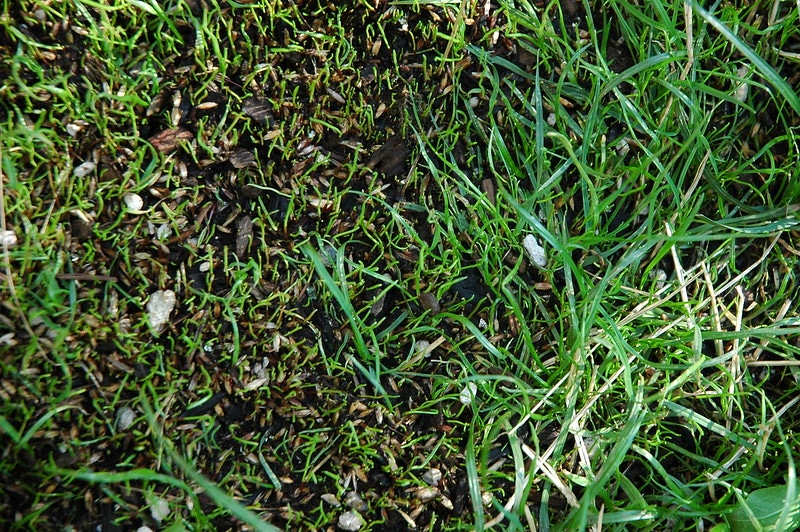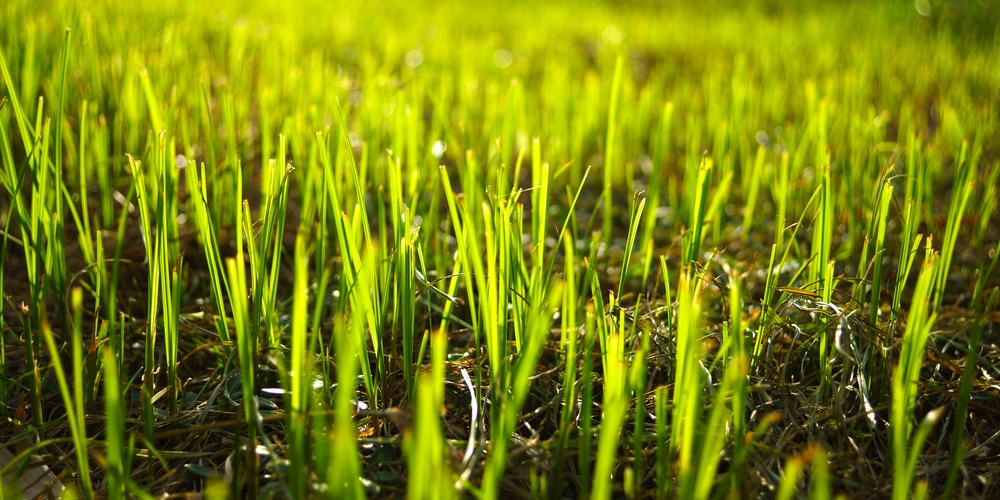Quick Answer:
| Question | How Long Does Grass Seed Take to Sprout? |
|---|---|
| Answer | Typically 5 to 30 Days |
| More Info | The germination time for grass seed depends on the type of grass, soil conditions, temperature, and moisture. Cool-season grasses like Kentucky bluegrass may take 14-30 days, while warm-season grasses like Bermuda grass can sprout in 5-10 days under ideal conditions. Consistent watering, proper soil preparation, and the right temperatures can help ensure successful and timely germination. |
When you sprinkle grass seed over your eagerly-awaited new lawn or patchy areas, awaiting the first signs of green can feel like quite the test of patience. The time it takes for grass seed to germinate and sprout into those satisfying green shoots depends on several factors, from the type of grass you’ve chosen to the conditions you provide.
Understanding the ideal conditions for grass seed growth can help manage your expectations and lead to successful lawn establishment.
Proper soil preparation, watering, sunlight, and temperature all play crucial roles in the germination process.
Cool-season grasses may sprout quickly in the right conditions, while warm-season varieties often take a bit longer to wake up and grow.
Optimal growing conditions will lead to sprouting within a typical range of about one to three weeks, but specific grass types, like Kentucky bluegrass, might require as many as 14-30 days to show signs of life.
Factors Influencing Germination Time
Understanding the variables that affect grass seed germination is crucial to achieving a lush, healthy lawn.
Seed Type Variations
Different grass seeds have varying germination times.
For example, the germination time for buffalo grass typically ranges between 14 and 30 days. Meanwhile, seeds like Bermudagrass may germinate quicker, typically between 7 to 30 days. Zoysia grass seeds are also within this range, sprouting between 14 to 21 days.
To better understand these timelines, you can refer to articles like Lawn Chick’s on grass seed germination time.
Soil Preparation
Preparation of the soil is essential for successful seed germination.
This involves ensuring your soil has the right texture and nutrients. A loose, clod-free soil bed allows for adequate air circulation and water penetration.
Adding compost or starting with a high-quality topsoil can significantly influence germination speed and effectiveness.
Watering Practices
Irrigation is key to prompt germination.
The soil should be kept consistently moist but not waterlogged. Overwatering can drown seeds, while under-watering can cause them to dry out.
Strike a balance with a watering schedule that keeps the top inch of soil moist, especially during the critical first few weeks after planting.
Climate and Season
Finally, climate and season play monumental roles in grass seed sprouting.
Cool-season grasses like Kentucky bluegrass, which typically germinate between 14 to 30 days, are best sown in fall or early spring when temperatures are moderate. Warm-season grasses thrive when planted in late spring or early summer.
An article from Storables about germination times offers further insights into climate considerations.
Germination Time Frame
When you plant grass seed, the anticipation for a lush lawn begins. Your seeds’ journey to sprouting and the initial growth stages depend on the type of grass and your care.
Expected Sprouting Timeline
To help you set realistic expectations, here’s a detailed timeline:
- Kentucky bluegrass: Typically sprouts in 14-30 days.
- Buffalo grass: Expect sprouting between 14 and 30 days.
- Bermudagrass: Germinates within 10 days to a month.
- Zoysia grass: Seeds usually germinate within 14 and 21 days.
- Centipede grass: Anticipate sprouting within 14-21 days.
Keep in mind that soil temperature, moisture levels, and the age of the seed play a pivotal role in these timelines.
Early Growth Stages
Once germination kicks in, your grass seeds enter the primary leaf growth stage. This is when you’ll first notice green blades pushing through the soil.
Providing constant care by maintaining soil moisture and protecting the area from heavy foot traffic is essential during this stage. It secures the healthy establishment of the grass for a resilient lawn in the future.
Improving Germination Success
To maximize your grass seed’s potential, it’s essential to adopt proper seeding techniques and maintain the ideal soil conditions. A professional approach to these practices can significantly enhance the rate at which your grass seeds sprout.
Proper Seeding Techniques
Choose high-quality seeds with a germination rate of 90-95% to ensure most seeds are viable.
Sow evenly, as clusters can lead to competition, reducing the chance of successful germination. Utilize a spreader for an even distribution, and lightly rake the area to help seeds come into contact with the soil, but avoid burying them too deeply.
Maintaining Soil Conditions
Maintain consistent moisture levels in the soil, as grass seeds require a damp environment to trigger germination.
Do not saturate; frequent light watering is often more effective.
Ensure that the soil temperature is conducive to growth by sowing warm-season grasses in late spring to early summer when the soil is sufficiently warm, leading to more favorable conditions for germination.
Frequently Asked Questions
Unlock the secrets to successful lawn creation by understanding the germination of grass seeds. Your queries on factors affecting seed sprouting to optimal planting times are addressed below.
What factors influence the germination time of grass seed?
Your grass seeds’ journey from dormancy to lush lawn is affected by seed type, soil conditions, planting depth, and moisture levels.
For instance, cool-season grasses like Kentucky bluegrass may require 14-30 days to germinate, while warm-season varieties like Bermuda can sprout in 7-14 days.
In what ways does weather affect the sprouting speed of grass seed?
Grass seed germination accelerates in warmer weather; a few degrees can make a significant difference.
Conversely, cooler temperatures may extend sprouting time, necessitating patience as seeds can take up to three weeks in such conditions.
What methods can accelerate the germination of grass seed?
Boost your grass seeds’ growth rate by ensuring proper soil preparation, appropriate watering, and by selecting a high-quality seed mix suited for your specific climate and lawn conditions.
How frequently should grass seed be watered during the germination process?
Consistent light watering is key — usually twice daily until sprouting.
The goal is to keep the upper soil layer moist but not waterlogged, creating an ideal germination environment for your seeds.
What signs indicate that grass seed is successfully germinating?
Visual cues of successful germination include the emergence of sprouts pushing through the soil.
Absence of molds or a fuzzy texture on seeds after two weeks can suggest a need to reassess your approach.
During which months is it most optimal to plant grass seed?
Generally, the best times to sow grass seed are during the fall for cool-season grasses. For warm-season varieties, the most optimal time is late spring to early summer.
These periods correspond with favorable soil temperatures and climatic conditions that support seed germination.
Last update on 2025-04-20 / Affiliate links / Images from Amazon Product Advertising API




